




On behalf of the Association for Art History, I would like to welcome you to our 49th Annual Conference – the first we have held in person since the onset of the pandemic. We are delighted to present this international event at University College London with the support of our Conference Committee and members of the History of Art Department at UCL.
The Association’s Annual Conference is an opportunity to engage with new research, hear leading keynotes, broaden networks and exchange ideas. In a 21st century facing multiple global challenges, the recognition and support of inter-sectional arts histories are of critical importance. As such, our provocation for Conference 2023 called for submissions that engage with race and gender, the environment, and social activism. We have 39 wide-ranging sessions comprising 198 papers and presentations. We are pleased to welcome art historians, curators, artists and researchers from all over the world presenting on a variety of topics including, among many others, gender and art in the global south, art and empire, the aesthetics and politics of soil, queer medievalisms, class and culture and the media of art education. In addition, we have included a Professional Programme strand with tours, workshops and a special roundtable discussion on the future of art history.
I am very grateful to all of those who have contributed considerable time to bring this conference together: our Conference Committee and colleagues at UCL, Alan Kirwan, Head of Programmes at the Association and Rebecca Morland, Conference Coordinator. Finally, I would like to thank the Paul Mellon Centre for their support of Tim Barringer’s keynote address. The effort put in by volunteers and the commitment of our supporters is a testament to their dedication to the field and to all of those in attendance.
Gregory Perry CEO, Association for Art HistoryUCL is delighted to host the Association for Art History’s 49th Annual Conference in 2023. After the Covid hiatus, we’re especially pleased to be able to accommodate the first fully in-person AAH conference in several years. On behalf of the History of Art Department at UCL, I wish you a very warm welcome to our campus!
While UCL first began awarding degrees in the subject from the mid-1960s, History of Art has been taught at UCL since at least the 1850s. Notably, the subject was a regular part of the teaching at the Slade School of Fine Art, founded in 1871, and a chair in the History of Art (currently held by Tamar Garb) was established in 1914. In 1965, the chair at the time, Leopold Ettlinger, successfully campaigned for the formation of a distinct Department and throughout its almost sixty years of separate existence UCL History of Art has come to be recognised as one of the most dynamic centres for the study of the subject in the world.
One of the key goals of the AAH is to promote the value of art history and visual culture today, supporting a broad and diverse art history community to do so. UCL History of Art is passionately committed to this vision. We have a long history of working to expand the horizons of the discipline in relation to social change and were one
of the first History of Art Departments in the UK to pursue feminist studies, issues of class and inequality, and visual studies of difference. We maintain a strong commitment to theoretically informed research, based on a shared belief that art history can provide vital insights into our changing world. In recent years, we have created new opportunities for research and teaching that are decisively outside the western canon, and outside the traditional geographical formations of art history.
This year’s annual conference programme resonates closely with these aims. It includes panels and strands devoted to the relationship between art, nationhood and empire, the intertwining of colonial and environmental art histories, and cross-cultural interactions across a longue durée. There are sessions on medievalism and modernism, early modern water, Victorian colour and class inequalities in contemporary art. Papers will be presented on art and visual cultures from right around the globe, deploying an incredibly diverse set of critical approaches. I very much look forward to participating in this rich and wideranging programme, along with you all, over the coming days.
Bob Mills Head of Department, UCL History of ArtAFTERNOON
THURSDAY 13 APRIL
ALL DAY
9.00 – 5.00
9.00 – 5.30
13.30 – 15.30 Sessions
Art, Empire & Nation (pt.2)
Queer Medievalisms in British Art (pt.2)
9.00 – 5.00 Registration
9.00 – 5.30 Book Fair
MORNING
10.30 – 12.30 Sessions
Art, Empire and Nation (pt.1)
Queer Medievalisms in British Art (pt.1)
Matter Matters: The Aesthetics and Politics of Soil (pt.1)
Mongol Bling: From Xanadu to Tabriz to Venice (pt.1)
Picturing Infrastructure: or the Infrastructure of Picturing (pt.1)
Victorian Colour Revolution: the Nineteenth Century Chromatic Turn (pt.1)
Remaking Femininity: Women’s Portraiture in Modern Asian Art and Visual Culture
Transcultural Asia: Movement of Art and Ideas across Borders
Visceral Journeys: Art and Anatomy in Medieval and Early Modern Visual Culture
Matter Matters: The Aesthetics and Politics of Soil (pt.2)
Mongol Bling: From Xanadu to Tabriz to Venice (pt.2)
Picturing Infrastructure: or the Infrastructure of Picturing (pt.2)
Victorian Colour Revolution: the Nineteenth Century Chromatic Turn (pt.2)
Against the Nation: Rethinking Canadian Art History in the World
Photography and 21st century Migration
Rethinking Global Conceptualism
16.00 – 17.30
Professional Programme Workshops and Tours
17.45 – 19.15
Keynotes and Fellows
Keynote: susan pui san lok
19.30 – 20.30
Drinks Reception
North Cloisters, UCL
10.30 – 12.30 Sessions
A Common Ground? Exploring Class, Culture and Collections (pt.1)
Intersections; Gender and Art in the Global South (pt.1)
Art and Abortion (pt.1)
Participatory Needlework as Tangible and Intangible Heritage (pt.1)
Watery Circulations in the Early Modern World (pt.1)
Chance and Control Today
New Art and New Arts of Government: Artistic Form and Authoritarian Liberalisms in the 1970s
Toward a Media History of Art and Design Education
Vizazi vingi: Tanzanian Modern & Contemporary Art in Regional & Globalising Art Worlds
Please note: The Professional Programme is automatically open to all conference delegates
FRIDAY 14TH APRIL
13.30 – 15.30 Sessions
A Common Ground? Exploring Class, Culture and Collections (pt.2)
Intersections: Gender and Art in the Global South (pt.2)
Art and Abortion (pt.2)
Participatory Needlework as Tangible and Intangible Heritage (pt.2)
Watery Circulations in the Early Modern World (pt.2)
Critical Histories of the Arts and Crafts Movement
Design Pedagogy Beyond Utopia: Modernism, Social Change and Everyday Life
Documenting and Preserving the Undescribed
Heading Uptown: Art and Activism in the Bronx
Scales of Landscape, 1750 – 1900
16.00 – 17.30
Professional Programme Workshops and Tours
17.45 – 19.15
Keynotes and Fellows
Keynote: Tim Barringer
19.30 – 20.30
Drinks Reception
North Cloisters, UCL
Animal Drag (pt.1)
Art and Populism (pt.1)
Conflicts, Disputes and Protest in Pre – Modern Print and Visual Culture (pt.1)
Deconstructing Russian
Imperialist Aesthetics: Repression, Resistance, and Representation in the Long Nineteeth Century (pt.1)
Last Works 1500 – 2000 (pt.1)
Feral Objects: A Proposition for a Speculative Animism
Picturing Wartime Sexual Violence Before Modernism
Romantic Legacies in the Twentieth Century
Written in the Margins: Interpreting Early Modern Artistic Literature
12.45 – 13.45
Keynote Speech
Keynote: Debra Higgs Strickland
14.30 – 16.30 Sessions
Animal Drag (pt.2)
Art and Populism (pt.2)
Conflicts, Disputes and Protest in Pre – Modern Print and Visual Culture (pt.2)
Deconstructing Russian Imperialist Aesthetics: Repression, Resistance, and Representation in the Long Nineteeth Century (pt.2)
Last Works 1500 – 2000 (pt.2)
Media and Militarism
Digital Medievalism
Uttering: Magical and Alternative Spiritual Practices in Art
Visualising Addiction
susan pui san lok / susan, lok pui san is an artist, researcher and writer based in London. Her practice ranges across installation, moving image, sound and text. She is a Professor in Contemporary Art at University of the Arts London and Director of the UAL Decolonising Arts Institute, currently also Principal Investigator on the AHRC project, Transforming Collections: Reimagining Art, Nation and Heritage and Director of the 20/20 project (supported by Arts Council England, the Freelands Foundation and UAL). She was CoInvestigator on the AHRC project, Black Artists and Modernism led by Professor Sonia Boyce (2015–18), securing the BBC documentary commission, Whoever Heard of a Black Artist? (2018), co-editing Conceptualism: International Framings, Intersectional Readings – Situating ‘Black artist’ in Europe (2019, with N. Aikens and S. Orlando), and contributing to ‘Remapping British Art: Three Moments of Modernism’, a special issue of Art History (2021, eds. S. Boyce and D. Price). Recent and current projects include REWIND/ REPLAY , commissioned for Rewinding Internationalism (Villa Arson, forthcoming; Van Abbemuseum, 2022-23; and Netwerk, Aalst, 2022)
What does it mean to speak in this space ‘for art history’? Speaking ‘to’ not ‘about’, speaking ‘with’ (in disparate company, scattered yet gathering, outside in)… Walking with the words of Trinh Minh-ha and Maria Lugones in my hands and ears, ‘against and away from that hushing of the manyness of the past in the present’, I assemble some off-key notes... to sound out some of the voicings and ventriloquisms echoing in my praxis of the last 30 years, to locate myself momentarily and uncomfortably ‘here’. Invoking words, gestures and interruptions that might be partially read, seen and heard (or not at all), I want to revisit and affirm these as small, tactical acts of disturbance and resistance, decolonial and otherwise. A farcical calling card (1995-ongoing), a disobliging ‘artist’s statement’, my ghosts of AAH conferences past (1998, 2008, 2018), and the multiplicity of voices coming into play in between and since –improvised choruses and ad hoc witnesses to mundane and fabulous displacements, to live archivery, aspiring and refusing (Notes on Return, 2003, Golden, 2005-, A COVEN A GROVE A STAND , 2019, seven x seven, 2021, Centenary, 2022, REWIND/REPLAY , 2022-23). How do you listen and attend to what you cannot hear?

‘Against and away from that hushing’: notes and scores for voices
Thursday 13 April
Tim Barringer is Paul Mellon Professor at the Department of the History of Art at Yale University, of which he was Chair from 2015 to 2021. He specializes in British art and art of the British Empire. Books include Reading the Pre-Raphaelites (1999) and Men at Work: Art and Labour in Victorian Britain (2005). He co-edited Frederic Leighton (1998); Colonialism and the Object (1998); Art and the British Empire (2007); Victorian Jamaica (2018) and On the Viewing Platform (2020). He was co-curator of American Sublime (Tate, 2002); Art and Emancipation in Jamaica (Yale, 2007); Before and After Modernism (2010); PreRaphaelites: Victorian Avant-Garde (Tate, 2012); Pastures Green and Dark Satanic Mills (2015); Thomas Cole’s Journey (Metropolitan, 2018) Picturesque and Sublime (Catskill, 2018) and Radical Victorians (201922). He gave the Paul Mellon Lectures at the National Gallery, London, in 2019, on Global Landscape. His book Broken Pastoral: Art and Music in Britain, Gothic Revival to Punk Rock will be published in 2024.
This paper examines the interwoven histories of art, music and imperial ideology in the emergence of the complex of institutions at South Kensington, founded after the Great Exhibition of 1851. These would come to include the Victoria and Albert Museum, the Royal College of Art and the Royal College of Music. Histories of the performing arts and those of visual and material culture are generally considered in isolation. But close examination of the braiding of these early institutional histories can reveal how powerfully the problematic of empire has shaped Britain’s cultural landscape. Synergies of sound and vision were deployed as oppressively at Albertopolis as on the durbar fields of the Raj. A decolonizing re-examination of the South Kensington archives, however, makes possible a fuller understanding of the imperfect functioning of imperialism as a totalizing cultural system. The absorption of visual and sonic influences from colonized peoples was a form of appropriation that also destabilized the mythic structures of British identity formation. Counternarratives reveal fractures along lines of class, race, gender and sexuality and suggest ways in which the institutions of Albertopolis, still powerful today, contain dissident strains within their own histories.

Friday 14 April
(
Debra Higgs Strickland is Professor of Medieval Art History at the University of Glasgow, where she teaches in the School of Culture and Creative Arts and has served as Director of the Glasgow Centre for Medieval and Renaissance Studies. Her interdisciplinary research interests revolve mainly around animals, monsters, and the so-called enemies of Christendom in late medieval art, on which she has published numerous papers and book chapters. Her monograph, Saracens, Demons, and Jews: Making Monsters in Medieval Art (2003), was among the first detailed analyses of representations of nonChristians in Christian art; other major publications include Medieval Bestiaries: Text, Image, Ideology (1995); The Mark of the Beast: The Medieval Bestiary in Art, Life, and Literature (1999); and The Epiphany of Hieronymus Bosch: Imagining Antichrist and Others from the Middle Ages to the Reformation (2016). Her monograph in progress, Monsters in Medieval Cultures, will be published by Reaktion; and a forthcoming edited collection on Medieval Bestiaries: New Approaches will explore the genre from ecocritical, cross-cultural, and material perspectives.
What can a fourteenth-century map of the world tell us about a medieval worldview? The Hereford Map, the most celebrated and best preserved of the monumental mappae mundi, presents a schematic rendering of the then-known world’s landmasses and waterways, enriched by topographical features and hundreds of tiny figures and architectural icons explicated by hundreds more Latin and AngloNorman legends. Displayed in Hereford Cathedral for the edification of local clergy and international pilgrims and visitors from all walks of life, it has long been recognized as an important witness to medieval geographical, theological, encyclopaedic, biblical, bestiary, and travel traditions. Its simultaneously spatial and temporal presentation of not only the entire populated ecumene but also the whole of Christian salvation history – from Genesis to Judgement – invited each viewer to find their own place in this world and the next. However, certain places and the imagined habits of their inhabitants eluded the Christian salvational narrative, if not Christian experience. In this paper, I explore how these ‘difficult’ places pointed to more worldly concerns shared by the Map’s diverse viewers through representational (dis) placement of what we recognize today as race, gender, sexuality and other central human issues; thereby demonstrating how the mappae mundi provide unique opportunities for modern critical thinking about medieval difference.
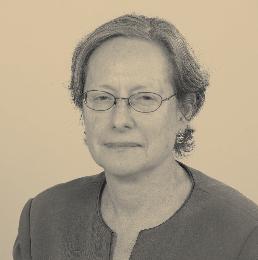

Patricia Allmer Patricia Allmer is Professor of Modern and Contemporary Art History at the University of Edinburgh. Her ground-breaking books, exhibitions, and essays have transformed the study of modern and contemporary women artists and Surrealism, starting in 2009 with her curation of the award-winning Angels of Anarchy: Women Artists and Surrealism at Manchester Art Gallery, the first major exhibition on this topic. Her books include the recent The Traumatic Surreal: Germanophone Women Artists and Surrealism after the Second World War (2022), Lee Miller: Photography, Surrealism and Beyond (2016), and the edited collection Intersections: Women Artists/Surrealism/Modernism (2016). She is also a major international scholar of René Magritte, publishing three books on him and delivering the 2017-18 International Émile Bernheim Programme lectures in Brussels. Her co-curated projects (with John Sears) include Taking Shots: The Photography of William S. Burroughs (2014), and 4 Saints in 3 Acts: A Snapshot of the American Avant-Garde (2018), both at The Photographers’ Gallery, London. These exhibitions significantly expanded critical understanding of modernist avant-gardes. She is currently working on two monographs focussing on women artists in relation to trans-medial and trans-Atlantic developments in Surrealism.
T. J. Clark was born in Bristol, England in 1943, took a B.A. in Modern History at Cambridge, and a Ph.D. in Art History at the Courtauld Institute, University of London. He taught at various places in England and the USA, and from 1988 to 2010 at the University of California, Berkeley, where he is George C. and Helen N. Pardee Chair Emeritus. Clark is the author of a series of books on the social character and formal dynamics of modern art: The Absolute Bourgeois: Artists and Politics in France 1848-1851 (1973); Image of the People: Gustave Courbet and the 1848 Revolution (1973); The Painting of Modern Life: Paris in the Art of Manet and his Followers (1984); and Farewell to an Idea: Episodes from a History of Modernism (1999); as well as Afflicted Powers: Capital and Spectacle in a New Age of War (written with “Retort,” 2005); The Sight of Death: An Experiment in Art Writing (2006); Picasso and Truth: From Cubism to Guernica (2013); and a book accompanying an exhibition at Tate Britain, co-authored with Anne M. Wagner, Lowry and the Painting of Modern Life (2013).
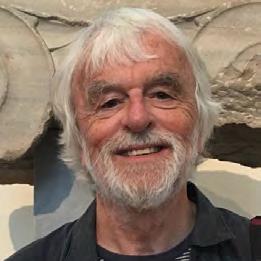

The Conference is taking place in the Institute of Education (IOE) at UCL. The full address is: Institute of Education, 20 Bedford Way WC1H 0AL.
Tube
The nearest tube is Russell Square (Piccadilly line) and Goodge Street (Northern line and step-free). Nearby stations with step-free access include Euston Square, King’s Cross St Pancras, and Tottenham Court Road.
Bus
Nearby bus stops include Russell Square, Tavistock Square, and Goodge Street Station.
The building is fully accessible. Please don’t hesitate to contact us in advance if you have any accessibility requirements you would like to make us aware of.
There are blue badge parking bays available on 20 Bedford Way WC1H 0AL
There is a DMS notification system that directs fire alarm information to an individual’s mobile phone. It can inform deaf or persons with hearing impairments when a fire alarm has been activated. To subscribe to the DMS service by texting ioebedfordway1 to 07797 870999
Guide dogs and support dogs are welcome, but we ask that you bring the provisions they require (water bowl etc).
Wheelchair accessible toilets can be found throughout the building.
Registration will be open from 9.00-5.00 (Wednesday 12 & Thursday 13th) and 9.00-4.30 (Friday 14th).
Registration can be found on Level 0 of the I o E, clearly signposted from the entrance.
All delegates must register to pick up their badge. Delegates will not be allowed into session rooms without a visible badge.
If you have any queries about your tickets in advance of the day, please contact conference2023@forarthistory.org.uk or look at the FAQ page on Eventbrite.
AAH team members will be found throughout the building, and will be identified by their AAH t-shirts.
Tea & Coffee and biscuits will be available at the times indicated in the schedule and are included in the price of your ticket.
There are various lunch and refreshment options available nearby, especially around Russell Square tube station, and also at the Brunswick Centre, which also has a couple of supermarkets and a chemist.
We only have limited facilities for storing luggage, and all luggage is left at your own risk. Please ask at the Registration Desk for further information.
WIFI
Guest Wifi is supplied by The Cloud. Further info: https://www.ucl.ac.uk/isd/how-to/connectingto-uclguest-wi-fi-cloud

Wednesday 12 April
16:00 – 17:30
Capacity: 35 people
Reservations can be made in advance online and those who have reserved will have priority. We would ask everyone with a reservation to confirm attendance at the Conference Registration Desk on the day, and all other bookers to register then (with attendance confirmed on a first come first served basis).
This workshop aims to collect opinions and continue the lively sector discussion on the relationship between copyright on one hand and public rights of use and access to publicly owned artworks on the other. Museums and galleries look after objects on behalf of society, but some of these artworks are subject to copyright law that attempts to balance the creators’ right to profit with the right of the public to use and build on creative works. At the same time, other works have become part of the public domain.
The workshop invites participants to reflect together on their experiences with copyright law. To explore questions such as, is copyright obstructing participatory formats for museums? Is copyright stifling research?
The workshop will consist of three 10-minute provocations, each followed by group discussion. Participants need no research background in copyright, just a keen interest in the useability of images, their own experience with copyright and an open mind.
Facilitators:
Oğulcan Ekiz
Queen Mary University of London (Law)
Ashley Gallant
University of Nottingham (History of Art), Sheffield Museums
Grischka Petri
FIZ Karlsruhe (Leibniz Institute for Information
Infrastructure, Dept. Intellectual Property Rights)
Wednesday 12 April
16:00 – 17:30
Capacity: 20 people
Reservations can be made in advance online and those who have reserved will have priority. We would ask everyone with a reservation to confirm attendance at the Conference Registration Desk on the day, and all other bookers to register then (with attendance confirmed on a first come first served basis).
Zines are self-produced, small circulation publications which often use appropriated images and texts which can then be copied in unlimited runs. Their history is one of radical publishing which flourished within many marginalised communities and established new publics for art, music, and counter-cultural thinking across many communities. Following up from the two workshops around decolonising art history pedagogy and assessment, which have been run by the Higher Education Committee of the AAH over the last two years, this event proposes zines as a form of assessment with huge potential for the history of art. This hands-on practical session will introduce participants to zine production as a way of communicating knowledge. The
session will be led by Laura Moseley of Common Threads Press, a small press that specialises in radical histories of crafts and making, with Dr James Boaden, University of York. Laura will show participants how to produce a basic one-sheet zine and present the history of the form.
Laura Moseley is a freelance creative producer and craft researcher from and based in Norwich, Norfolk. Laura has an BA in History of Art from the University of York, and an MA in History of Art from UCL, winning the Dissertation Prize from both institutions for their research into craft histories. In 2019, Laura founded Common Threads Press, an independent publisher of radical craft histories which is stocked internationally, including by the Tate Modern.
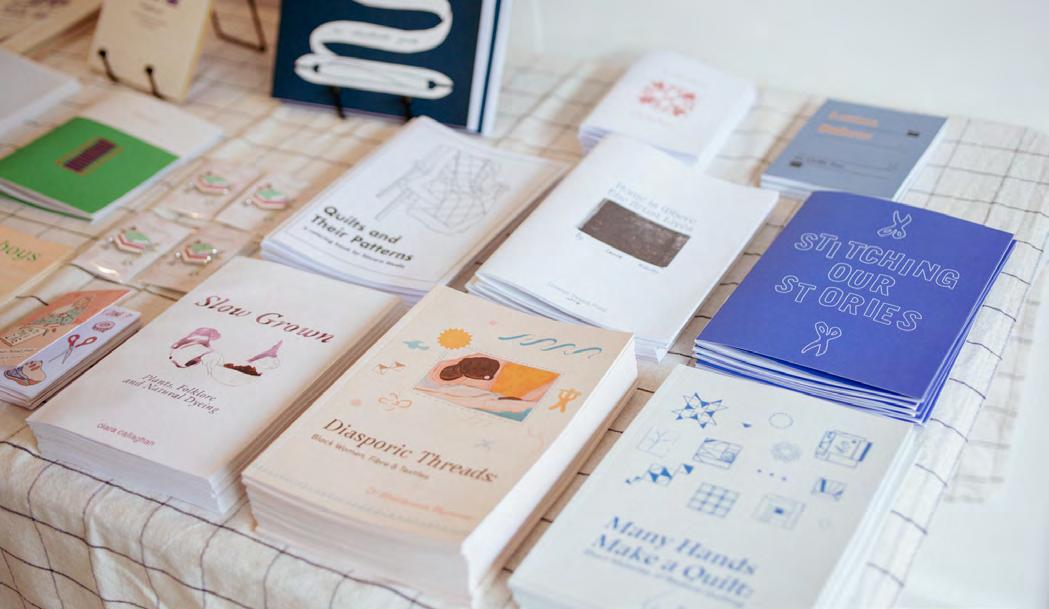

Thursday 13 April
16:00 – 17:30
Capacity: 120 people
Reservations can be made in advance online and those who have reserved will have priority. We would ask everyone with a reservation to confirm attendance at the Conference Registration Desk on the day, and all other bookers to register then (with attendance confirmed on a first come first served basis).
The Association for Art History will host a roundtable discussion on the future of art history to which all delegates are invited. We are all aware of the challenges facing our subject along with other arts and humanities subjects in the higher education sector. In light of these, we will consider what the priorities for the discipline should be now, and in the future and agree how, with the Association, we will address them.
The event will comprise short presentations by five invited speakers followed by discussion among delegates. We will focus on specific,
concrete steps to be taken. To ensure that there is follow-through, reports on suggestions/ actions from the first meeting will be made to a second roundtable discussion on 23 June at 4:30 to 6:00pm at the AAH offices. At this second meeting priorities will be established for further work.
The roundtable will be chaired by AAH CEO, Gregory Perry and will include speakers representing various constituencies and perspectives within the discipline of art history and its associated professions.
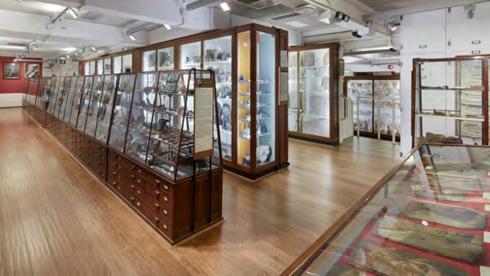
Thursday 13 April
16:00 – 17:30
Capacity: 20 people per tour at each museum
Reservations can be made in advance online and those who have reserved will have priority. We would ask everyone with a reservation to confirm attendance at the Conference Registration Desk on the day, and all other bookers to register then (with attendance confirmed on a first come first served basis).
An opportunity for conference delegates to avail of two specially arranged tours by UCL Museums Service offering insights into the university’s exceptional collection of art and archaeology.

UCL Art Museum Based in a traditional print room, our collections contain over 10,000 objects including paintings, drawings, prints and sculpture dating from the late fifteenth century to the present day. Works on paper are housed in the print room with paintings and sculpture displayed in public spaces across campus. The collection was founded in 1847 with a gift of the sculpture models and drawings by the neo-classical artist John Flaxman. Many of these are permanently displayed in the Flaxman Gallery, located at the heart of University College London close to the museum. Current exhibition: https://www.ucl.ac.uk/culture/whats-on/not-just-words
Petrie Museum of Egyptian & Sudanese Archaeology The Petrie Museum houses an estimated 80,000 objects, making it one of the most significant collections of Egyptian and Sudanese archaeology in the world outside of Egypt. Ranking behind only the British Museum and Egyptian Museum of Berlin in terms of size.
The museum was established as a teaching resource for the Department of Egyptian Archaeology & Philology when the department was created in 1892. Specialising in objects of daily life, it illustrates life in the Nile Valley from prehistory through the time of the Pharaohs, Ptolemaic, Roman, and Coptic history to the Islamic period.
Registration
Book Fair
Queer Medievalism in British Art
Robert Mills
Matthew Reeve
Mongol Bling: From Xanadu to Tabriz to Venice
Sussan Babaie
Shane McCausland
Matter Matters: The Aesthetics and Politics of Soil
Kassandra Nakas
Jessica Ullrich
Picturing infrastructure: or the infrastructure of Picturing
Zoë De Luca
Emily Doucet
Art, Empire and Nation
Elizabeth Robles
Zehra Jumabhoy
Visceral Journeys: Art and Anatomy in Medieval and Early Modern Visual Culture
Rosemary Moore
Lauren Rozenberg
Transcultural Asia: Movement of Art & Ideas across Borders
Ja Won Lee
Remaking Femininity: Women’s Portraiture in Modern Asian Art and Visual Culture
Xinyi Ye
Victorian Colour Revolution: the Nineteenth Centure Chromatic Turn
Madeline Hewitson
Charlotte Ribeyrol
Matthew Winterbottom
Edward Burne-Jones’s Queer Hygiene
Whitney Davis
A Turning Point? Branding Jingdezhen Blue-and-White Porcelain in the Fourteenth Century with Special Reference of Islamic Market.
Ching-fei Shih
For the Rights of the Soil not to be Exhausted: Ecocentric Practices for Land Restoration
Maja Fowkes
Reuben Fowkes
Out of the Clouds: Infra- and extrastructure at London (Heathrow)
Airport
Mark Crinson
Nationalism and Orientalism in The Grammar of Ornament
Solmaz Mohammadzadeh Kive
Fragmentation and Unification: The Material Basis of Movement in Vesalius
Petra Sikic
Uncovering the Traditions of Joseon Court Portraiture Through Portraits of Yi Bok Shin
Doo Hee Chung
Not just a ‘Flower’: The Representations of Female Movie Stars in 1930s China
Mi Zhou
‘Mr Syme’s useful little work’: Colour, collecting and zoological image-making, 1820–1850
Joyce Dixon
Queering Medievalism in Oxford Students’ Cartoons, 1837–1939
Dominic Janes
The Gift of Supreme Divinity: Mongol-Koryo Avatamsaka Sutra in the Vatican Library Collection Konstance Chuntung Li
Copper, Nitrogen and Other Elements that Soil Should not Remember
Elisabetta Rattalino
Images, Information, and the Infrastructure of EPA’s Project Documerica
Kimia Shahi
An invisible collection: Latin American objects at the Victoria & Albert Museum Manuela Portales Sanfuentes
Blood(less) affairs: visualizing parturition sans horror of birth in later Middle Ages
Danijela Zutic
Objects as History: Ancient Ritual Bronzes in the Metropolitan Museum of Art Ja Won Lee
Changing Times, Changing Clothes: Nyonya Self-fashioning in Studio Portraits from the Straits Settlement
Miriam Yeo Sze En
What Colour is the Anthropocene? Eco-Critical Approaches to Victorian Chromatics
Kirsty Dootson Sinclair
‘All Nuns Bright and Beautiful’: Queer Medievalism and the London Sisters of Perpetual Indulgence
Thomas Elliott
Gold, Jade, and Silk: Dress and Adornment of Local Elites in Northwest China during the Mongol Period
Eiren Shea
Understanding the Politics of Soil in Tamil Speaking South India: Aesthetics and Tamil Culture, Soil Smuggling and Land Degradation
Salvarpatti Manuvelraj Ponnudurai
Infrastructural Intelligibility and the Soviet Art
Sasha Shestakova
Exhibiting the nation: the British Pavilion at the Venice Art Biennale
Claudia Di Tosto
Knowing and Viewing the Secrets of Women: An Illumination of The Dissection of Agrippina in John the Fearless’ De cas des nobles hommes et femmes
Benjamin W. Allsopp
Crossing Borders in the 1920s-1940s:
Xu Beihong’s Art, Networks, and Transnational Memories
Fong Fong Chen
Faces of Anguish:
Zhen Guo’s Self-Portraits in Feminist Art
Gail Levin
Victorian Iridescence: Evolutionary Self-Fashioning in the Bethnal Green Museum’s Animal Products
Pandora Spyerek
Two Exhibition Interventions at the Rijksmuseum: SLAVERNIJ (2021) and REVOLUSI! (2022)
Nicola Foster
Abstraction On the Move: Japanese Artists on the 1960s Italian Art Scene
Jelena Stojković
False Femininities and Queer Corporealities: Re-Examining the Life and Work of Kainosho Tadaota
Patrick Carland-Echavarria
Queer Medievalism in British Art
Robert Mills
Matthew Reeve
Mongol Bling: From Xanadu to Tabriz to Venice
Sussan Babaie
Shane McCausland
Matter Matters: The Aesthetics and Politics of Soil
Kassandra Nakas
Jessica Ullrich
Picturing infrastructure: or the infrastructure of Picturing
Zoë De Luca
Emily Doucet
Art, Empire and Nation
Elizabeth Robles
Zehra Jumabhoy
Against the Nation: Rethinking Canadian Art History in the World
Jennifer Kennedy
Devon Smither
Rethinking Global Conceptualism
Christopher Williams-Wynn
Elize Mazadiego
Photography and 21st century Migration
Sarah Bassnett
Blessy Augustine
Victorian Colour Revolution: the Nineteenth Centure
Chromatic Turn
Madeline Hewitson
Charlotte Ribeyrol
Matthew Winterbottom
St Pelagius the Penitent and the Trans Divine
Evelyn Whorrall-Campbell
Performative Tile-work: Takhte Soleyman, Poetry, Landscape and Legacy
Margaret Shortle
The Soil: From Abstract Mind Wandering to Politico-Aesthetic Mindfulness
Greg Minissale
Nelson Makengo’s Nuit
Debout and Toujours Debout: Infrastructure Between Promise and Improvisation
Steyn Bergs
Pakistani Contemporary Miniature Painting: Tradition, Authenticity and Validation
Samina Iqbal
Mary Bell Eastlake’s ‘Other’ Mothers
Samantha Burton
Globality, Capitalism, and the Historiography of Conceptual Art
Peter Osborne
The Right to be Invisible: Limits of Photographic Witnessing
Olga Smith
Glaciers, twilights and ‘all manner of strange things’: William Morris and the Colours of Iceland
Ludovic Le Saux
Breasts in the Basement
Baylee Woodley
A Glimpse of ‘Mongol Taste’: The Mystery of Enshōin
Avalokiteśvara Painting
Mia Ye Ma
Hollow Out, Hollow In. The Earth as an Object of Material Imagination in Gaston Bachelard’s Work
Kirsten Wagner
Picturing São Paulo’s Big Worm
Richard J. Williams
Cornwallis’s statue: a perspective on indigeneity and empire
Murdo Macdonald
Revisiting Norman McLaren: Complicity and Subterfuge
Marcus Jack
Diachronic meditations: East/West Displacement and Zeitgeist in the work of Hungarian conceptualist László Lakner
Sarah Wilson
Repurposing the Archive. Recounting Latin American Women’s Stories of Migration
Raquel Villar Pérez
‘Made of Dead Pharaohs’ The Materiality of Mummy
Brown Paint
Lauren Bruce
Some Medieval Motifs in Art and AIDS Activism in Britain
Theo Gordon
A Technology of Affluence: Crafting Wealth at the Ilkhanid Court. The example of the Textile Collection of MIA, Doha
Nicoletta Fazio
Artistic Soil Sensing
Alexandra R. Toland
Tracing Chancels – conservation work reveals previously invisible religious infrastructure
Meagen Smith
Visual Re-imaginations of the Raffles Statue and its Colonial Legacy
Jeffrey Say
Extra-curricular: photography, race, and education in the University Settlement House of Toronto, 1946-56
Gabrielle Moser
Decolonial Dialogues: Indigenous Conceptualisms in Art and Art History
Robert Bailey
Central American Women Migrants on the Move and Examination of Violence and Identity
Through Photography
Encarni Pindado
The Problem of Colour in Victorian Art and Science
Keren Hammerschlag
Proxies of Colonial Inheritance in the works of Erika Tan and Paula Albuquerque
Astrid Korporaal
Pakulo Politics: Shop 6 and The Institutions of Conceptual Art
Jeppe Ugelvig
Drift Alignment: Astronomy, Celestial Navigation, and the US-Mexico Border
Andrew O’Brien
Professional Programme
Copyright and Museums: A Discursive Workshop
Ashley Gallant
Grischka Petri
Oğulcan Ekiz Room W3.05
Art History Cut and Pasted – A Zine Making Workshop
Laura Moseley Room W3.01
Keynote and Fellows
Logan Hall Welcome
Gregory Perry, CEO, Association for Art History
Fellows Speech
Patricia Allmer
Keynote Introduction
Elizabeth Robles
Keynote Speech susan pui san lok
Registration
Book Fair
Watery Circulations in the Early Modern World
Elsje van Kessel
A Common Ground? Exploring Class, Culture and Collections
Trevor Horsewood
Beth Hughes
Intersections:
Gender and Art in the Global South
Karen von Veh
Landi Raubenheimer
Participatory Needlework as Tangible and Intangible Heritage
Lorna Dillon
Emma Shercliff
Rose Sinclair
New Art and New Arts of Government: Artistic Form and Authoritarian Liberalisms in the 1970s
Kylie Gilchrest
Adeena May
Luke Skrebowski
Chance and Control Today
Taisuke Edamura
Liquid Land
Joost Keizer
The Dutch, the Ocean, and a Nautilus Cup in a 17th-Century Still Life
Marta Watters
The arts as downward social mobility
Dave O’Brien
Mark Taymor
Orian Brook
Wearing your heart on your sleeve: Reclaiming Black Female Identity in my work as well as work by Zanele Muholi
Sanelisiwe Nkonyane
Quilting the Black Atlantic: Exploring Storywork as Methodology for Black Quilt Study
Chinelo L. Njaka
Modern Art and the Politics of Spirituality Under Authoritarian Liberalism
Hamed Yousefi
Harnessing Gravity: Chance and the ‘Aerial Gesture’
Miriam Ashkin Stanton
Class Wash: Working Class Artist Voices and British Public Art Collections
Beth Hughes
Caesarean Births and Exotic Species:
Christine Dixie’s Images of Childbirth
Brenda Schmahmann
Indian Women, Wartime Knitting and Participatory Spaces of Production Pragya Sharma
Precarious solidarities? Artists for Democracy (1974–1977) Wing Chan David Morris
Care as Control and Surrender: The Politics of Care Management and the Multispecies Landscape in Gerard Ortín’s Wolf Urine (2017)
Eszter Erdosi
Toward a Media History of Art and Design Education
Emily Ruth Capper
Jeffrey Saletnik
Vizazi vingi: Tanzanian Modern & Contemporary Art in Regional & Globalising Art Worlds
Elsbeth Court
Jonathan Shirland
The Diagram Within
Barbara Jaffee
Life Drawing and the Lay Figure: Adrian Piper’s Pedagogical Models Isabel Bird
Vizazi Vingi/Generations: A Purview Elsbeth Court
Call the Midwife: Cognitive Approaches to Reading Obstetrix Epitaphs
Abigail Graham“Peering beneath the ochre-colored attractions we face the poetic expression of a unification of social forces”: Sam Ntiro’s generational artistic agency in regional and globalizing art worlds Jonathan Shirland
The Problem of the Public: Abortion in German Health Fair Culture (1925 – 1931)
Caitlin PowellThe history of water and its ecologies in the visual and spatial cultures of Serampore
Nuno Grancho
The Inaesthetic Art of the ‘Downed Dumb’
Robin Baillie
Reimagining the Feminine Self: Strategies of Subversion in the Works of Contemporary Iranian Women Artists
Katy Shahandeh
‘Presents of Hearts’: Participatory Needleworks, Women Activism, and Nation-Building in Hungary, 1848–1867
Éva Bicskei
Cultural Politics at the End of Third World Nationalisms
John Beeson
Scandals of Creation: Generative AI and Chance Operations within Artistic Production
Brendan Flanagan
Ella Dawn McGeough
Comparing the Critical Pedagogies of Michael Asher and Mary Kelly
Rebecca Sprowl
The Creation of a Global Tanzanian Artist: new insights into the development of Kiure Francis Msangi
Ziddi Msangi
Embodied epistemologies: How and to what effect do artist run vaginal self-examination workshops testify to the ongoing importance of body autonomy as a feminist strategy?
MA Hana Janeckova
Exploring the role of Black Female Characters in a selection of Kudzanai Chiurai’s artworks
Shonisani Netshia
The Derry Linen Shirt as a Metonymy for the Gendered Memorialisation of the Troubles in Northern Ireland
Giulia Priori
Divide and Conquer: Amalia Pica, The Empty Set, and Legacies of Argentina’s ‘Dirty War’
August Jordan Davis
‘Plastic City’: Theorising Chance and Control through Hong Kong at the Chance Event (1996)
Emily Verla Bovino
IAUS: Institutionality and Pedagogy
Alex Maymind
“There Could be an Endless Ocean”: gender, generation and the (Swahili) seas in Lubaina Himid’s political painting
Franziska Fay
Fascinating Fetalism: Mark Ryden’s Fetal Trapping in Northern California
Elizabeth Legge
C309
Watery Circulations in the Early Modern World
Elsje van Kessel
A Common Ground? Exploring Class, Culture and Collections
Trevor Horsewood
Beth Hughes
Intersections: Gender and Art in the Global South
Karen von Veh
Landi Raubenheimer
Participatory Needlework as Tangible and Intangible Heritage
Lorna Dillon
Emma Shercliff
Rose Sinclair
Documenting and Preserving the Undescribed
Bianca Andrade Tinoco
Daniela Felix Martins Kawabe
Critical Histories of the Arts and Crafts Movement
Thomas Cooper
Design Pedagogy Beyond Utopia: Modernism, Social Change and Everyday Life
Alexandra Chiriac
Hyewon Yoon
Scales of Landscape, 1750-1900
Stephanie O’Rourke
Nicholas Robbins
He who swims wins? A global perspective on notions of masculinity in imagery of early modern swimming and bathing
Kathrin Wagner
Skyway: A Contemporary Collaboration
Ola Wlusek
Suited up, seeing through: Subverting male subjectivities in the work of South African artist
Paul Emmanuel
Irene Bronner
FuxiCO project: The textile handicraft of Brazilian fuxico as a feminist tool for women’s empowerment through social design and co-creation
Mariah Majolo
Lost to classification: Radically reinscribing the !Xun Collection
Magdaleen du Toit
‘Of the racial influence in design’: race and different in the English Arts and Crafts Movement
Imogen Hart
Abstraction for the Struggle Against Unemployment
Jason Mientkiewicz
Colossal Landscapes: the sky beyond science and earthly experience
Victor dos Reis
Edvard Munch and the ‘Great Cause’: Abortion, Eugenics, and White Saviourism
Allison Morehead
The Shape of Water in Gabriel Bray’s Circum-Atlantic Images
Ben Pollitt
Finding Language for Working Class Stories
Louisa Lee
Cosas de género/matters of gender: embodied engagements with landscapes, traditions, and epistemologies in the Latin American South
María Victoria Guzmán
Knitting collectively in Mexico: a perspective from within the beehive
Annuska Angulo Rivero
Miriam Mabel Martínez
Distant echoes: China at the São Paulo Biennials
Renata Cristina de Oliveira Maia Zago
Amanda Mazzoni Marcato
Chinese Porcelain in British Arts and Crafts Discourse around 1900
Charlotte Ashby
The Other Bauhaus: Lena Meyer-Bergner’s Commitment to Social Change through the Material Transformation of Everyday Life
Sandra Neugärtner
Touch and the Scalar Imagination
Ting Chang
Heading Uptown: Art and Activism in the Bronx
Tom Day
Relics of Urban Renewal:
Raphael Montañez
Ortiz’s Archaeological Finds and the Bronx
Tom Day
Embodiment, power and political engagement: the case of Paula Rego’s Abortion series
Márcia Oliveira
Disruption Through Style in New York Subway graffiti
Alessandro Pozzolo
Plus ultra: Containing the Seas from Francis Bacon to Jules Verne
Johannes von MüllerThe Building Blocks of the Journey: Class in Steve McQueen’s Work
Elisabetta FabriziCabinet (2014-2015) and A Queer Museum (2020-2021): Cur’ating Space in Vietnam for NonNormative Gender Expressions’
Cas BradbeerKeeping in touch: participatory textile making inside prison
Charlotte BilbyBrazilian Indigenous Art on a Global Stage: The Politics of the 34th São Paulo Biennial
Caroline Dunker Fucci‘Glances which flash’ in the Darkness: Eroticism in the Sapphic Modern
Lotte Crawford
In Defense of the Poor Design
Seungyeon Gabrielle Jung
The Bongi Dhlomo Collection: Towards a discourse on black women art collectors
Pfunzo Sidogi
Encrypted stitches: documenting the everyday Eliana Sánchez-Aldana
Margarita Cuellar BaronaFrom Art to Craft: Re-thinking Iranian material culture in British museum collections
Friederike VoigtCrafting Motif: Indigenous Textile Design and Contemporary Arts and Crafts Industry
Emma C. Wingfield
Learning from Naples. Riccardo Dalisi’s disseminated design community
Sara CatenacciShrinking Scale: the global materials of Victorian painting and the disavowal of distance
Kate Nichols‘Our Lady, or Yours?’: The Image of the Virgin Mary in Abortion Activism
Maryanne Saunders
Art and Activism in the Bronx: gentrification and the commercialisation of art and activism
Christine DeFazioOn Native Clays: The Rookwood Pottery Company, geological scale, and belonging
Manon GaudetRhetoric, Violence, and the Back-Alley Abortion: Edward Kienholz’s Pro-Choice Tableaux, Before and After Roe
Johanna GosseVampires vs. the Bronx, or How to Spot Gentrification in the Wild
Alice TremeaProfessional Programme
Art History, Looking to the FutureA Round Table
Discussion Room W3.01
UCL Museum Tours Meet at the Registration Desk
Keynote and Fellows
Logan Hall Welcome Gregory Perry, CEO, Association for Art History
Fellows Video Acceptance Speech
T.J.Clark
Keynote Introduction
Nicholas Robbins
Keynote Speech
Tim Barringer
Registration
Book Fair
Deconstructing Russian Imperialist Aesthetics: Repression, Resistance, and Representation in the Long Nineteenth Century
Louise Hardim
Maria Taroutina
Animal Drag
Nicola McCartney
A ‘Russian Raphael’? Alexey Egorov and Kalmyk people in the Making of an Imperial Aesthetic
Ekaterina Heath
Jennifer Milam
We all share a hobby: Animalesque politics of Serbian postsocialist drag
Andrija Filipović
Imperial Entanglements from the Baltic to the Mediterranean: The Case of Vasily Timm
Rosalind Polly Blakesley
Symbiosis through the Skin
Elizabeth A. Hodson
Conflicts, Disputes and Protest in Pre-Modern Print and Visual Culture
Chiara Betti
Marie Giraud
Last Works 1500 – 2000
Alejandro Nodarse
Tai Mitsuji
Feral Objects: A Proposition for a Speculative Animism
Paula Chambers
Dawn Woolley
Written in the Margins: Interpreting Early Modern Artistic Literature
Mario Zamora Pérez
Patricia Manzano Rodríguez
Romantic Legacies in the Twentieth Century
Elina Gudmundsson
Will Atkin
Picturing Wartime Sexual Violence Before Modernism
Péter Bokody
Competitive collaboration: The production of geographic knowledge in Britain in the longeighteenth century
Katherine Parker
Final State: Defying Reproduction in Nineteenth-Century Printmaking
Danielle Canter
Drones Gone Wild, and Other Unruly Bodies of War
Claudette Lauzon
Le officine delle Vite: new philological observations on the Magliabechiano manuscript XVII, 17 and Vasari’s Lives
Lorenzo Bartoli
The Revival of the Sublime in Rothko’s Mature Style: Romantic Origins and Redefinition
Evangelia Naka
The Cassandrian Lucretia: Depictions of Cassandra’s Rape and Military Propaganda in 6th-century Etruria
Grace Wilson
Know Your Place? Peasants and Soldiers as Political Actors in Sixteenth Century Prints
Jonathan Trayner
Vision and Sacrifice: Philipp Otto Runge’s Fall of the Fatherland
David Ehrenpreis
Where the wild things art: reframing feral objects with photography
Philip Welding
“et dichi pur giorgio quel che gli piace”. Zuccari on Vasari
Maria Giulia Aurigemma
Harvesting Fragments of the Future: the Afterlives of Yoko Ono’s Instructions
Gabriella Daris
Metaphors of War and Violence in Italy around 1300 Péter Bokody
Sofia Gotti
Marko Ilić
Rehabilitating Populism: The Museo de la Solidaridad and the Chilean Way to Socialism
Matthew Juan Mason
Those Dreams Keep You Free: FOOD, SoHo, and the Contest of Belonging
Jacqueline Mabey
Etching as a Different Kind of Resistance:
Taras Shevchenko’s Prints
Galina Mardilovich
The gallery’s best-kept secret’: Wolves in the Gallery – Trans* Activism; Clowning; Animal Drag
Nina Kane
“Mary, Mary, quite contrary”: Mary II in print during the Glorious Revolution
Holly Marsden
The Anteroom Dweller: Siegfried Kracauer’s History: The Last Things Before the Last
Kevin Lotery
Acting Earth –Installing Propositions for Alternative Cosmologies in the Venice Biennale 2022
Sandrine Welte
Toledo as a possible meeting place for Domenico Theotocopuli and Federico Zuccari: Interlocutors, reading and annotations of the Lives of Vasari
Macarena Moralejo Ortega
Mythologies of the End: Romantic Shades in the Poetics of Anselm Kiefer
Manuel Mazzucchini
(Not) Picturing Sexual Violence in the Spanish Maghreb
Cristelle Baskins
Re-Balkanizing Europe: Performative Orientalism and Decoloniality in Contemporary Art from Eastern Europe to the Caucasus
Hella Wiedmer-Newman
Art-House, Home of Dis/Content
Carole Griffiths
Keynotes
Welcome
Gregory Perry, CEO, Association for Art History
Keynote Introduction
Bob Mills
Keynote Speech
Debra Higgs Strickland
Rediscovering the Notizie in the original edition: Baldinucci’s annotations in the margins
Mariaceleste di Meo
Interpretations of Interpretation – Craig Owens’ Postmodernist
Romanticism
Matthew Bowman
Pillaging the Farm: Jacques Callot’s Representation of Rape in The Miseries of War (1633)
Marika Takanishi Knowles
Deconstructing Russian
Imperialist Aesthetics: Repression, Resistance, and Representation in the Long Nineteenth Century
Louise Hardim
Maria Taroutina
Animal Drag
Nicola McCartney
Fabergé’s Imperialism: Decorative Worlds and Utopian Dreams at the Exposition Universelle of 1900
Emily Cox
Fish out of water: lesbian desire, disability, and impossibility in Xu Tan’s Allegory of Love II (1993)
Jiaqi Kang
Subverting orientalism and antisemitism? Imperial Russian cultural hybridity in Sonia Delaunay’s Yellow Nude (1908)
Laura Ryan
“Tail Envy” – Rethinking Psychoanalytic Models of Desire through Marianna Simnett’s The Severed Tail
Elisabetta Garletti
Conflict, Disputes and Protest in Pre-Modern Print and Visual Culture
Chiara Betti
Marie Giraud
Last Works 1500 – 2000
Alejandro Nodarse
Tai Mitsuji
Uttering: Magical and Alternative Spiritual Practices in Art
Elena Parpa
Evi Tselika
Media and Militarism
Ivan Knapp
Digital Medievalism
Atineh Movsesian
Claudia Haines
Drawing from Print Culture: The Representation and Condemnation of War in Sixteenth-Century
Domestic Music Performance
Huw Keene
Raphael’s Unfinished Challenge: the Legacy of the Room of Constantine outside the Vatican Palace
Maria Gabriella Matarazzo
Representations of new identities and drug use in 20th Century Spanish Cinema: Quinqui Cinema and La Movida
Barbara Barreiro Leon
Psychology of Yellow: Colour, Spiritualism and Energy in Kukpa’s Yellow Paintings
Alessandra Ronetti
Tabloid Visuality, Paranoid Publics
Kimberly Schreiber
Lebanese Legacies: Conflicts in Pre-Modern Print and Visual Culture on Emir Fakher-El Din II
Danielle Andréa Krikorian
Loose Threads: Inca Quipus, Jorge Eduardo Eielson, and the Enduring Allure of Illegible Objects
Ji Mary Seo
Behavioural Addictions and Indian Culture, Indian Movies and Visual Culture: A Critical Inquiry of Women Drug Addiction in India
Manuvelraj Ponnudurai
Steiner and Kandinsky’s scenic compositions: Esoteric Theatricality and reawakening Humanity on Stage
David Picquart
Insta-history and the War in Afghanistan
Helen Lewandowski
Using Virtual Reality to Explore 15th Century Illuminated Manuscripts
Sabina Zonno
Lynn Dodd
Weaving and Video, Ritual and Performance: Populism and Contemporary Art in Havana
Harper Montgomery
The Colors of Sant Quirze de Pedret
Begoña Cayuela
Authentic Affect: Exposing the Power in –and of – Emotions in Tania
Bruguera’s Hyundai Commission
Grace Thompson
More than Russian: Paris-based Artists from the Western Territories of the Russian Empire, 1900–1914
Mira Kozhanova
Embodied Performance in Sajan
Mani’s ‘Art will never die, but COW?’
Anisha Palat
Making a Place of War and Sedition out of a Place Serving as a Safe Refuge for All…” A Broadsheet of a Street
Fight between the Portuguese and the Spanish Ambassadors in Rome in 1642
Urte Krass
In Search of the Miraculous: Bas Jan Ader’s Last Project
Filip Pręgowski
Ballads of Dependency: visualization of sexual and drug addictions in Nan
Goldin’s portraits of Cookie
Mueller and Greer Lankton
Yana Shtilman
Infused with Past Use: Spirituality in the Work of Senga
Nengudi and David Hammons
Martyna Ewa Majewska
Culture War Machines
John R. Blakinger
‘For Body, Brain and Nerves’: the Vin Mariani phenomenon
Belinda Thomson
Egyptomania, Alchemy and Magic: decolonising magic in contemporary art curation
Gillian McIverAugmenting Reality, Rationalising Subjects
Dawna Schuld
Digital Gothic: The Case of the Lady Chapel of SaintGermain-des-Prés (c.1255)
Kristine Tanton
Meredith Cohen
Is documenta fifteen a ‘populist’ exhibition?
Di LiuDigital Medievalism and User-Generated 3D Models
Matthew Westerby
Conference venue
Tour location
UCL buildings
Student’s Union buildings
Pedestrian areas
Tube station
Railway station
Bus stop
Cycle hire station
Café
Hospital
Pedestrian crossing
Bloomsbury Visual Arts offers a wide variety of books on the study of art and visual culture from around the globe, particularly the 18th century to contemporary with expanding emphasis on material culture, interdisciplinary studies, and aspects of gender and race as related to visual studies.
Bloomsbury Visual Arts 50 Bedford Square London
WC1B 3DP
Website bloomsbury.com/uk/academic/ art-visual-culture/ Twitter @BloomsburyAcad
Founded in 1683 in Leiden, the Netherlands, Brill is a leading international academic publisher in the Humanities. The company’s head office is in the Netherlands, with offices in Germany, Austria, the USA and Asia. Brill publishes almost 600 journals and over 2.000 new books and reference works per year in both print and electronic format as well as primary source research collections and databases.
Brill Plantijnstraat 2 2321 JC Leiden
The Netherlands
Website brill.com
Twitter @BrillPublishing
The Burlington Magazine is the world’s leading monthly publication devoted to the fine and decorative arts. It publishes concise, wellwritten articles based on original research, presenting new works, art-historical discoveries and fresh interpretations.
Burlington Contemporary is an online platform for writing and research on international contemporary art, published by The Burlington Magazine. It is free to access and includes weekly reviews and articles, and a biannual peer-reviewed journal.

The Burlington Magazine 14-16 Duke’s Rd London
WC1H 9SZ
The Burlington Magazine Website burlington.org.uk
Twitter @BurlingtonMag
Instagram @theburlingtonmagazine
Burlington Contemporary Website contemporary.burlington.org.uk
Twitter @BurlContemp
Instagram @Burlingtoncontemporary
Edinburgh University Press publishes a broad range of books and journals in the study of art, image and culture, crossing disciplinary borders. From architecture to photography, fashion and design to art history and aesthetics, our catalogue reflects this interdisciplinary, transcultural and transhistorical field. You will find critical interventions between theory and practice, field-defining reference works, richly illustrated art history projects and exhibition photography combining scholarly as well as artistic approaches to visual culture.
Intellect is a fiercely independent academic publisher for scholars and practitioners teaching and researching in the arts, media and creative industries. Best known for our work in the visual and performing arts, we provide publishing services in many subject areas, backed by over 30 years of steady growth, and a reputation for excellence in design and production. We welcome new book proposals and articles for our peerreviewed Arts journals. Contact James Campbell (james@intellectbooks.com) for more information.

Edinburgh University Press The Tun

12/2 Jackson’s Entry
Edinburgh EH8 8PJ
Website edinburghuniversitypress.com
Twitter @EdinburghUP
Leuven University Press is a mission-driven academic press of international repute. The press has built up a strong book collection in the Arts, Humanities & Social Sciences, and also has experience in publishing art and artists’ books in collaboration with international museums and galleries. We embrace Open Access and help authors to publish their book in OA through the KU Leuven Fund for Fair Open Access.
Intellect, The Mill, Parnall Rd, Fishponds, Bristol BS16 3JG
Website
intellectbooks.com
Twitter @IntellectBooks
Liverpool University Press (LUP) is the UK’s third oldest university press, with a distinguished history of publishing exceptional research since 1899, including the work of Nobel prize winners. LUP has rapidly expanded in recent years to become an award-winning academic publisher that produces approximately 150 books a year, 42 journals and a number of ebook collections, specialising in literature, modern languages, history and film studies
Leuven University Press Minderbroedersstraat 4 3000 Leuven Belgium
Website lup.be
Twitter @LeuvenUP
Instagram @leuvenuniversitypress
Liverpool University Press 4 Cambridge Street
Liverpool
L69 7ZU
Website
liverpooluniversitypress.co.uk
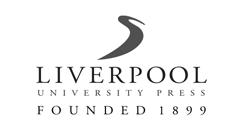
@LivUniPress
Instagram @livunipress
Manchester University Press’ aim is to always deliver best practices across our publishing activities. We embrace opportunities to innovate and explore new ways of supporting scholarly communications, and endeavour to be engaged and responsive to the changing needs of the academic community and our broader readership.
Manchester University Press 176 Waterloo Place, The University of Manchester, Oxford Road, Manchester, M13 9GP
Website manchesteruniversitypress.co.uk
New books from the MIT Press in 2023 include: Computational Formalism by Amanda Wasielewski; Postsensual Aesthetics by James Voorhies; The Culture of the Case by Frederic J. Schwartz; White Sight by Nicholas Mirzoeff; Picture Research by Nina Lager Vestberg; Cheyney Thompson, Passages by Christian Schaernack; plus the latest from the journals ARTMargins and African Arts
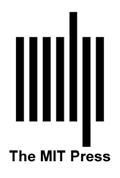
The MIT Press One Broadway, 12th Floor Cambridge, MA 02142 USA
Website mitpress.mit.edu

Twitter @mitpress Instagram @mitpress
The Paul Mellon Centre is an educational charity that champions new ways of understanding British art history and culture. We publish, teach and carry out research, both at the Centre in London and through our online platforms. Our archives, library and lively events programme are open to researchers, students and the public. The Centre’s grants and fellowships programme supports institutions and individuals with research projects, publications, exhibitions and events.
Paul Mellon Centre for Studies in British Art 16 Bedford Square London WC1B 3JA
Website paul-mellon-centre.ac.uk
Twitter @paulmelloncentr Instagram @paulmelloncentr
Princeton University Press brings influential voices and ideas to the world stage through our academic scholarship, advancing the frontiers of scholarly knowledge and promoting the human conversation. Our art history books range from authoritative, award-winning scholarly studies and primary materials to volumes of work by living artists and exhibition catalogues.
Princeton University Press 99 Banbury Road Oxford OX2 6JX
Website press.princeton.edu
Twitter @PrincetonUPress Instagram @PrincetonUPress
Thames & Hudson is an independent, familyowned company, and one of the world’s leading publishers of illustrated books. We publish highquality titles across all areas of visual creativity: the arts, architecture, design, photography, fashion, film and music, and also archaeology, history and popular culture. Our founding principle is to provide a ‘museum without walls.’
Thames & Hudson 181A High Holborn London WC1V 7QX United Kingdom
Website thamesandhudson.co.uk
Twitter @thamesandhudson Instagram @thamesandhudson
The University of Chicago Press publishes more than 90 scholarly journals that cover a wide range of disciplines, from the humanities and the social sciences to the life and physical sciences. In addition to working with departments and faculty of the University of Chicago, the University of Chicago Press publishes influential scholarly journals on behalf of learned and professional societies and associations, foundations, museums, and other not-for-profit organizations. All publications are peer-reviewed.
The University of Chicago Press Journals Division 1427 East 60th Street Chicago IL 60637 USA
Twitter @ChicagoJournals
Working with internationally-renowned institutions and authors, Yale University Press publishes beautiful and authoritative books on all aspects of the arts, including architecture, fashion, design, decorative art and much more. Yale also publishes the Pevsner Architectural Guides series of books.
Yale University Press London 47 Bedford Square London WC1B 3DP
Website yalebooks.co.uk
Twitter @yalebooks Instagram @yalebooks
We are delighted to be back in person at the Art History annual conference. Visit our stand to see the books we’ve been publishing over the last few years. press.princeton.edu/subjects/art-architecture
Samuel Hirszenberg, 1865–1908
Richard I. Cohen & Mirjam Rajner
This fully illustrated study presents an intimate and detailed picture of the life and artistic development of Samuel Hirszenberg.

Published by The Littman Library of Jewish Civilization
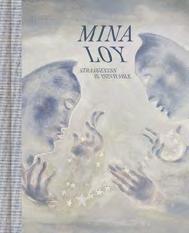
March 2022 HB | 9781789621938 | £57.50
Browse more in Art & Art History: www.liverpooluniversitypress.co.uk
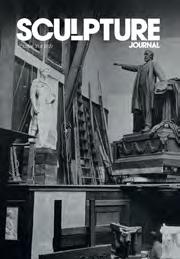

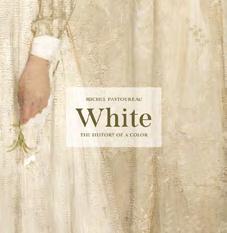
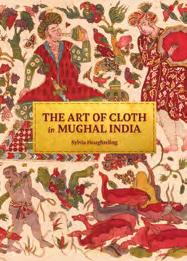
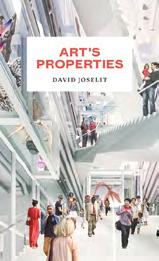
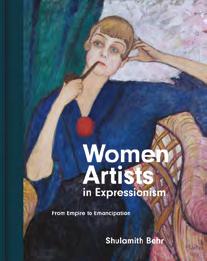
Britain’s foremost scholarly journal devoted to sculpture in all its aspects from prehistory to the present across the globe. It provides an international forum for writers and scholars in the field of sculpture and public commemorative monuments.
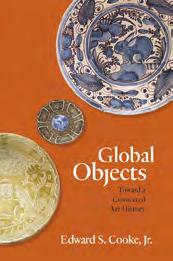
ISSN (print): 1366-2724
ISSN (online): 1756-9923


Blue-and-White Porcelain
Creation, Development and Competition in China, Japan and Europe
Meili Yang
Looking at the Chinese ceramic industry and the role of culture, society and politics in bringing about the creation of blue-and-white porcelain.
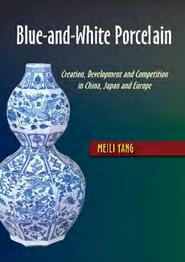
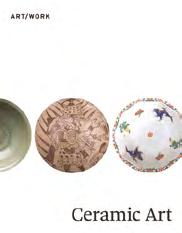
February 2023 HB | 9781789761801 | £88.00
Pablo Picasso: A Period of Transformation (1906–1916)
Enrique Mallen April 2023
Alfredo Roces David Jonathan Bayot April 2023
Ars Judaica
A publication of the Department of Jewish Art at Bar-Ilan University.
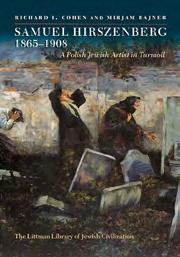
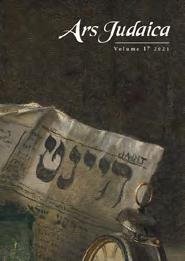
A peer-reviewed publication on Jewish visual culture, showcasing the Jewish contribution to the visual arts and architecture from antiquity to the present from a variety of perspectives.
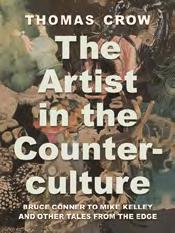
ISSN (print): 1565-6721








ISSN (online): 2516-4252
Download complete issues of each journal for free. Available online at bit.ly/ FreetoRead2023
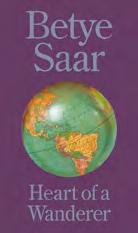
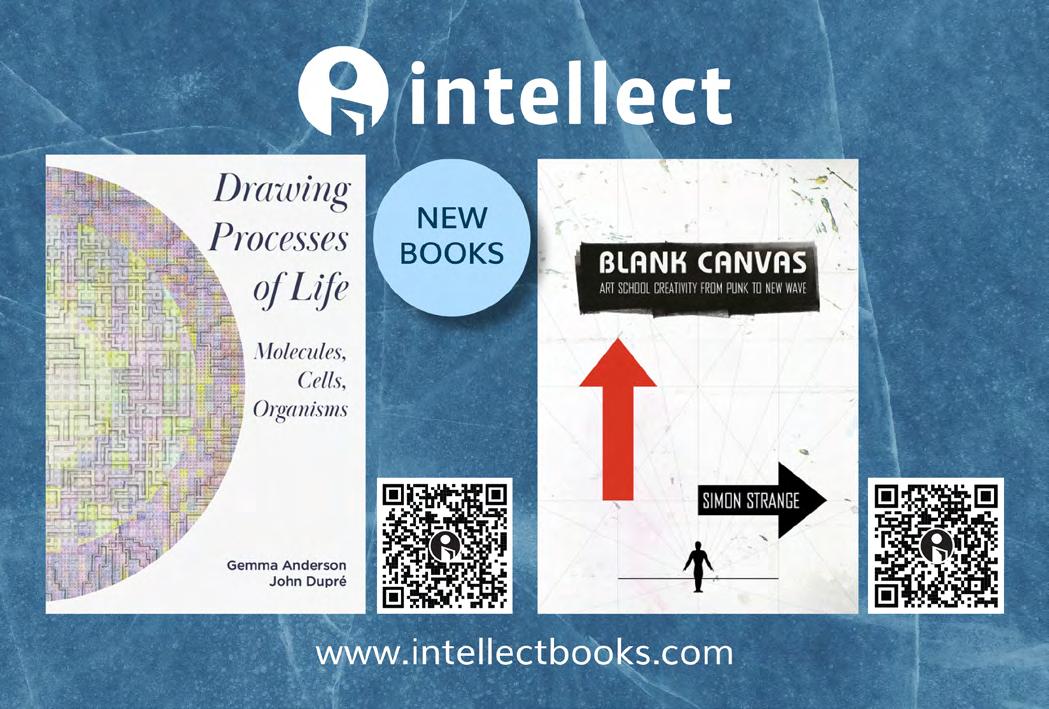
All members of the Association are invited to join us at our annual meeting in June for the second part of our conversation on the future of art history; this will take forward ideas for discussion from the roundtable held at the conference and will give members an opportunity to help shape the Association’s work to ensure the health of the subject and discipline.
We will also award curatorial prizes at the event which will be followed by a drinks reception.
Please join us at our offices, 70 Cowcross Street on 23 June at 4:30 for this important discussion and stay for the awards and reception. Further details of the event will be sent to members in due course.
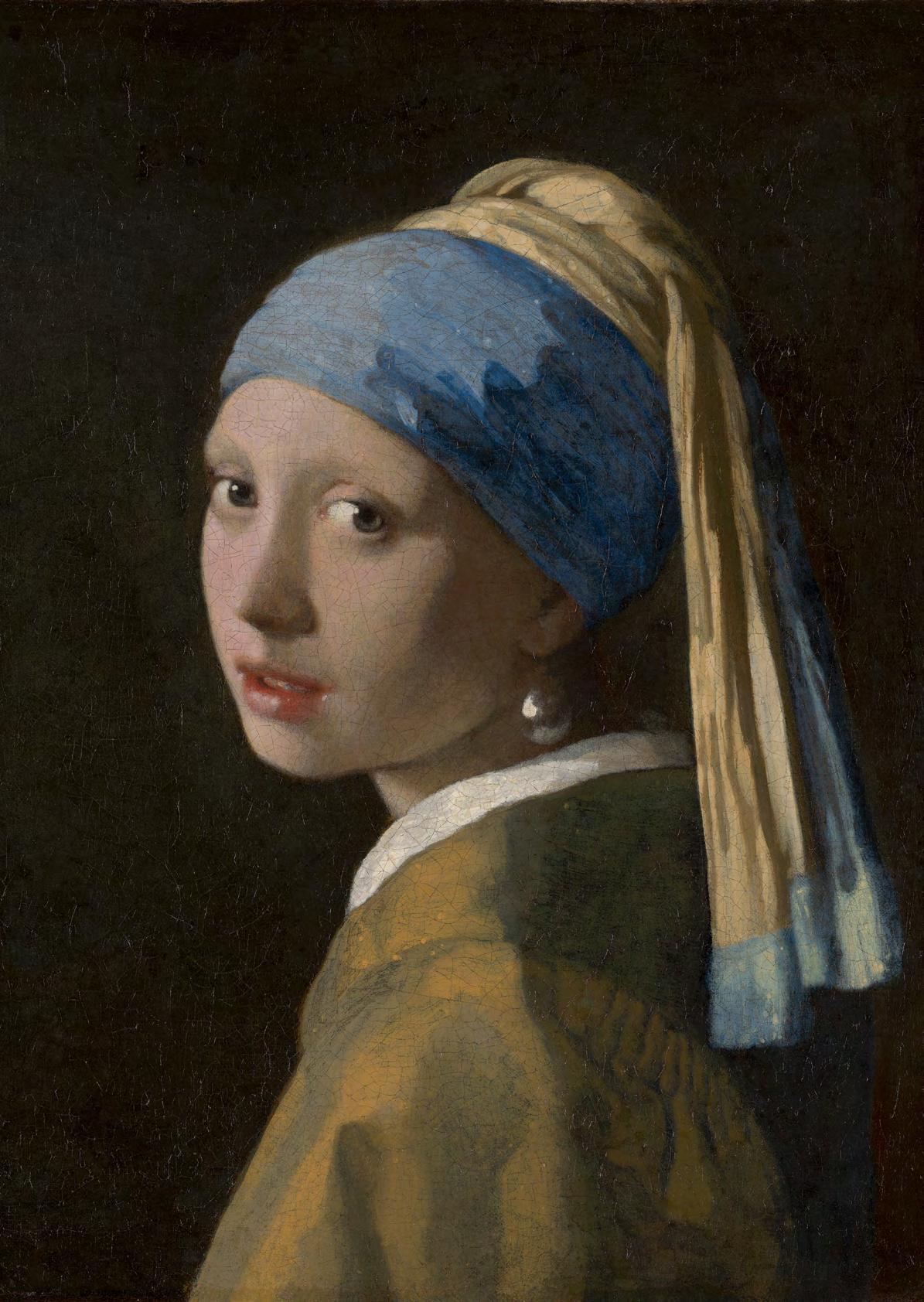
As a member you’ll support our mission and receive:
1. Discounts to events, including our Annual Conference
2. 75% off our flagship publication Art History
3. Access to grants and prizes

4. The latest research, opportunities and resources news
5. Opportunities to build your network and connections
Join online: www.forarthistory.org.uk/membership
Email us: membership@forarthistory.org.uk
Girl with a Pearl Earring, Johannes Vermeer, 1665, oil on canvas, Mauritshuis, The Hague.
Afterall: A Journal of Art, Context and Enquiry
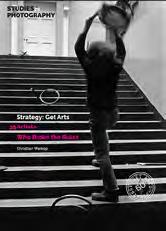
American Art
Archives of American Art Journal

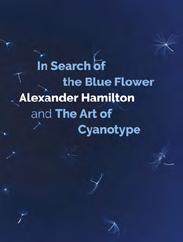
Art Documentation: Journal of the Art Libraries Society of North America

Bulletin of the Detroit Institute of Arts
Early Modern Women: An Interdisciplinary Journal
Gesta
Getty Research Journal
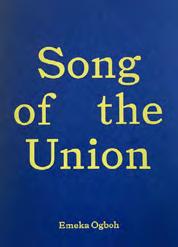
Journal of the Warburg and Courtauld Institutes



Metropolitan Museum Journal
Portable Gray
Res: Anthropology and Aesthetics
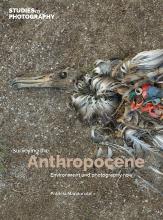
Source: Notes in the History of Art
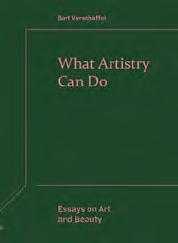
Speculum: A Journal of Medieval Studies
I Tatti Studies in the Italian Renaissance West 86th: A Journal of Decorative Arts, Design History, and Material Culture
Winterthur Portfolio
journals.uchicago.edu
Visit
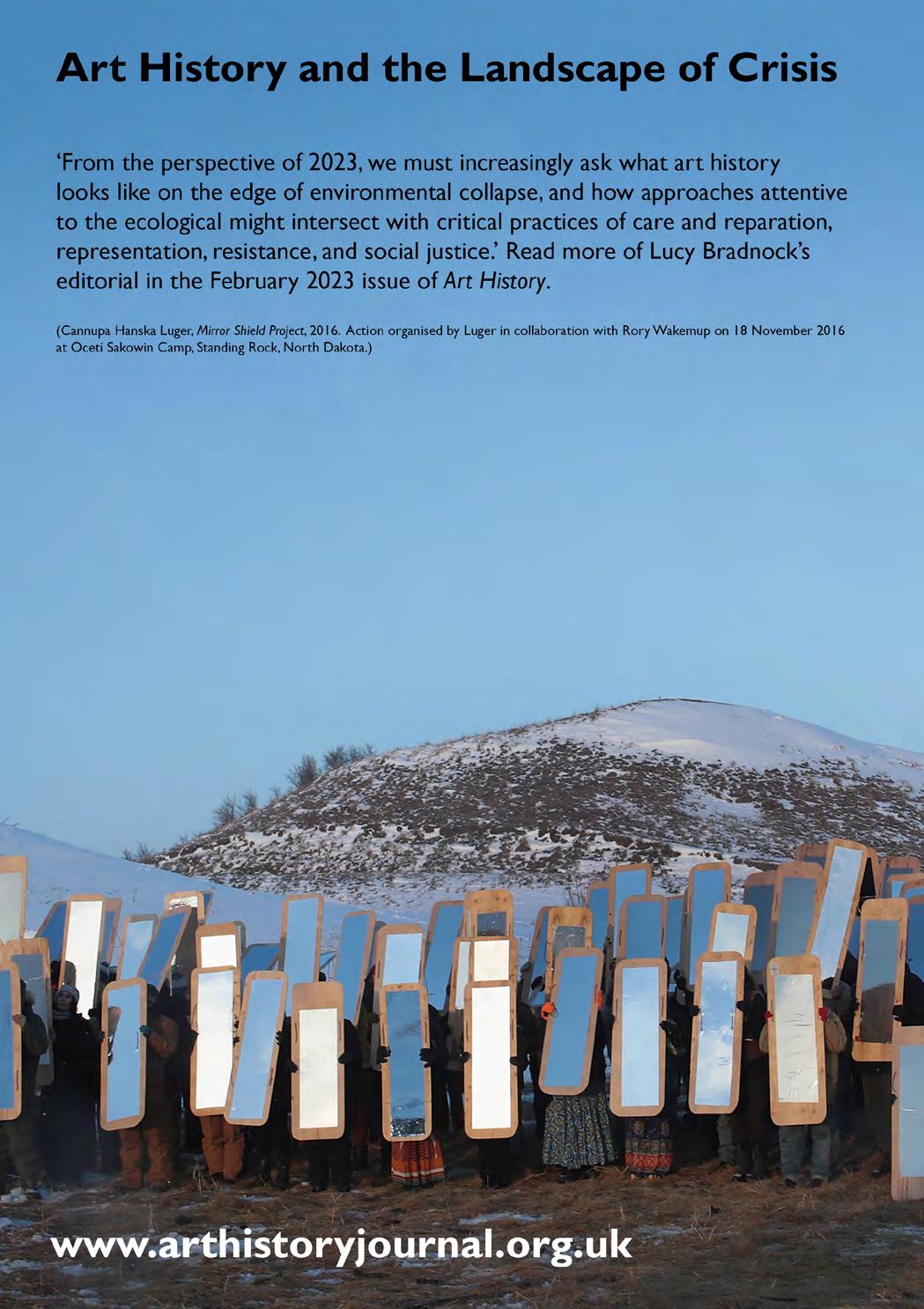
History of Japanese Art after 1945 Institutions, Discourse, Practice

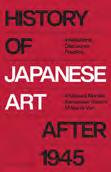
Kitazawa Noriaki, Kuresawa
Takemi, Mitsuda Yuri
£41.00 | HB
ISBN 9789462703544
Ebook
Anarchy of the Body Undercurrents of Performance Art in 1960s Japan
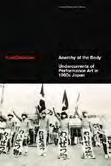
KuroDalaiJee
£49.00 | HB
ISBN 9789462703537
ebook
Unfinished Histories Empire and Postcolonial Resonance in Central Africa and Belgium
Pierre-Philippe Fraiture (ed.)
£32.00 | PB
ISBN 9789462703575
Open Access ebook
From Bayreuth to Burkina Faso Christoph Schlingensief’s Opera Village Africa as Postcolonial Gesamtkunstwerk?

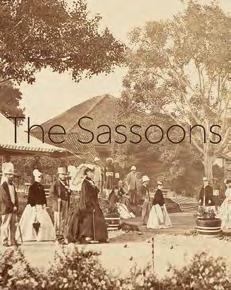
Sarah Hegenbart
£58.00 | PB
ISBN 9789462703582
ebook
Contemporary Photography in France Between Theory and Practice
Olga Smith
£41.00 | PB

ISBN 9789462703445
ebook
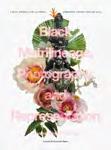
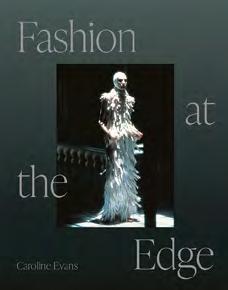
Black Matrilineage, Photography, and Representation Another Way of Knowing
Lesly Deschler Canossi, Zoraida Lopez-Diago (eds)
£49.00 | PB
ISBN 9789462702868
Open Access ebook

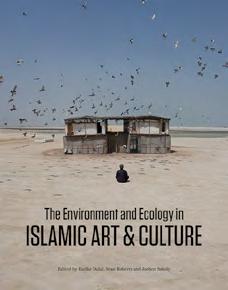
2024 marks the fiftieth anniversary of the Association for Art History. We are delighted to announce that next year’s conference will be held in collaboration with the History of Art department at the University of Bristol.
Date: 3-5 April 2024
History of Art at the University of Bristol originally emerged from the Department of Modern Languages, and we continue to be particularly invested in an interdisciplinary approach to transcultural exchange, across a period ranging from the middles ages to the present day. With an increasingly global focus, accounting for histories often marginalised in visual art, our framework includes materials, objects, bodies and institutions. For a ‘history of art’ department not much older than the AAH itself, the association’s fiftieth anniversary represents an opportunity to reflect on the transformation – and diversification – of the field, and to chart its future together. We particularly invite session proposals that address the state of the discipline, as well as those that engage with the broad theme of cross-cultural exchange.
How to submit a session proposal
Details about session format and submitting session proposals can be viewed at www.forarthistory.org.uk
Deadline: 26 June 2023
Submit via email: conference2024@forarthistory.org.uk
